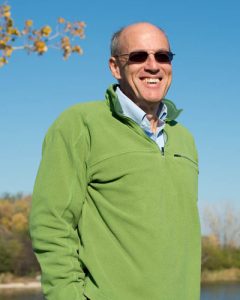 Charles T. Driscoll is a Distinguished and University Professor at Syracuse University. Driscoll’s scholarly work addresses the effects of disturbance on forest, freshwater and marine ecosystems, including air pollution (acid and mercury deposition), land-use, and climate change. Current research focuses on: recovery of eastern forest watersheds from elevated acidic deposition; atmospheric deposition, watershed and surface water transport and transformations, and biotic exposure of mercury; co-benefits of carbon dioxide emissions controls from power plants; ecosystem restoration; and ecosystem response to changing climate. He has been a principal investigator of the Hubbard Brook Long-Term Ecosystem Research project, and is currently a co-investigator. Driscoll has testified at Congressional and state legislative committee hearings, and served on many local, national and international committees. He is a member of the National Academy of Engineering.
Charles T. Driscoll is a Distinguished and University Professor at Syracuse University. Driscoll’s scholarly work addresses the effects of disturbance on forest, freshwater and marine ecosystems, including air pollution (acid and mercury deposition), land-use, and climate change. Current research focuses on: recovery of eastern forest watersheds from elevated acidic deposition; atmospheric deposition, watershed and surface water transport and transformations, and biotic exposure of mercury; co-benefits of carbon dioxide emissions controls from power plants; ecosystem restoration; and ecosystem response to changing climate. He has been a principal investigator of the Hubbard Brook Long-Term Ecosystem Research project, and is currently a co-investigator. Driscoll has testified at Congressional and state legislative committee hearings, and served on many local, national and international committees. He is a member of the National Academy of Engineering.




